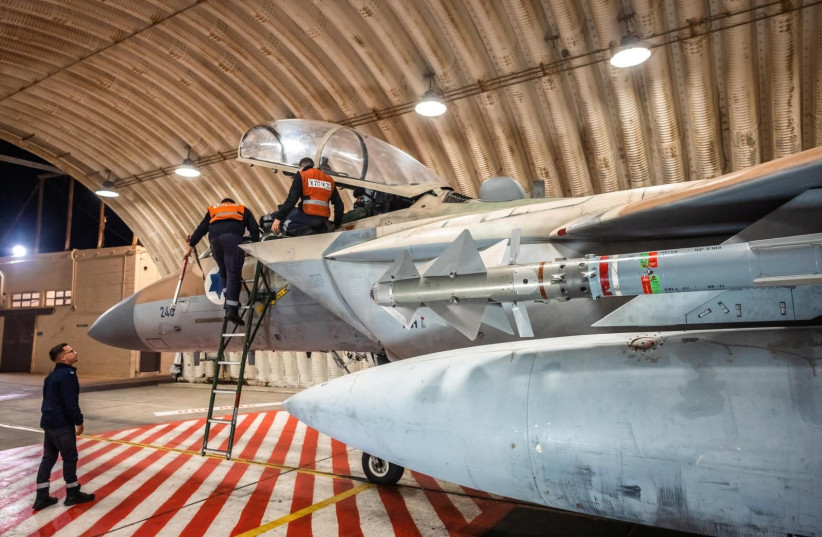Iran sought to change the ‘equation’ of its confrontation with Israel
One of the outcomes of the Iranian attack on Israel with 350 drones and missiles is that it has now set a standard for retaliation. It has drawn a line between an airstrike in Damascus and its desire to retaliate. This is a new kind of equation in the tensions between Israel and Iran. What this means is that Iran often calculates its moves in the region and also its responses to various incidents.
For instance, in the past, Iran has hijacked or attacked ships in order to escalate tensions or try to wring concessions with various Western powers. Iran is very calculating in this process. It has also operationalized proxy groups in the region to carry out attacks. In Iraq, it has used proxies to attack the Kurdistan Region and target US forces over the last five years. Iran has also directly attacked Iraq’s Kurdistan region and attacked Pakistan and Syria in January, claiming to target terrorists.
Iran is, therefore, expanding the reach of its attacks and its willingness to attack directly from Iran. This is a new era in terms of Iran’s openness to carry out these attacks and take credit for them. It should be recalled that back in 2019, when Iran attacked Saudi Arabia’s Abqaiq facility using drones and missiles, the Iranian-backed Houthis in Yemen initially took responsibility. The Houthis were willing to take the blame so Iran could get out of suffering retaliation by Riyadh. In the end, it is clear that Iran carried out the attack.
Today, Iran has graduated from the Abqaiq attack, or the attack on US forces at Asad base in 2020, which Iran carried out in retaliation for the US killing IRGC Quds Force head Qasem Soleimani. Iran is now willing to launch hundreds of missiles and drones at Israel.
A new precedent set in the Middle East?
This sets a new bar, and it seems to imply Iran will now be willing to carry out massive attacks in the future. It also means that if Iran attacks Israel in the future with a few drones and missiles, this will be seen as a smaller attack, and Iran will have rewritten the rules to have impunity for smaller attacks. Iran has watched as some commentators called its April 13-14 attack “symbolic.” In reality the attack was not symbolic, it was massive and unprecedented.

Israel faces choices on how to respond. It is important to watch and see how Iran seeks to redraw the “equation” in the region. For instance, Iran has sought to encourage Hezbollah in Lebanon to redraw an equation with Israel as well. Hezbollah has carried out 3,100 attacks on Israel and has even expanded those attacks in cases, trying to set a new kind of doctrine in which it feels impunity to attack northern Israel. This is the new normal now in northern Israel, and Israel had to evacuate some 80,000 people from northern Israel.
Israel will have to extricate it from this equation in order to restore deterrence. This is widely understood in Israel. However, it’s not just Israel’s understanding of this issue that matters. It is important to analyze how Iran views this new era. Iran has set a bar through its attacks. It will want to maintain that bar. Iran will also want to maintain its militias in Iraq and Syria, and also the Houthis in Yemen and Hezbollah to continue to have them attack and threaten Israel.
Iran believes it is in a new era not only after the April 13 attack but also after October 7. It believes Israel is weaker than in the past and that Israel is having difficulty responding to multi-front threats. Iran thinks it is playing the region like a conductor at a symphony, keying in its proxies the way one would bring in sections of string, percussion, brass, and woodwind instruments in an orchestra. Israel has to decide whether it wants to keep listening to the music or upend this drumbeat.





Comments are closed.